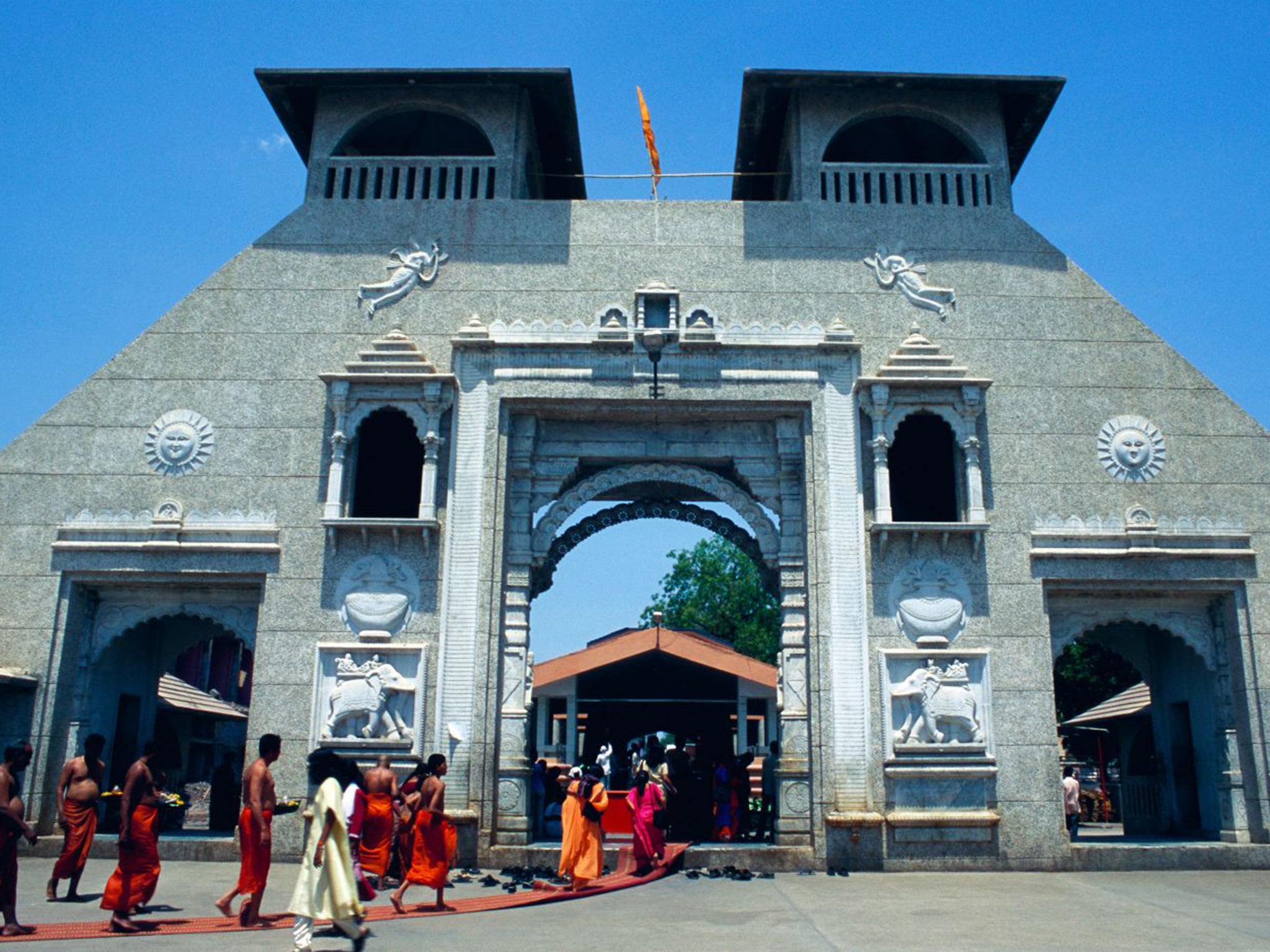Female activists fight against gender inequality in India's Hindu temples
Temple authorities maintain the men-only tradition has stood for centuries and it would be wrong to change it

Your support helps us to tell the story
From reproductive rights to climate change to Big Tech, The Independent is on the ground when the story is developing. Whether it's investigating the financials of Elon Musk's pro-Trump PAC or producing our latest documentary, 'The A Word', which shines a light on the American women fighting for reproductive rights, we know how important it is to parse out the facts from the messaging.
At such a critical moment in US history, we need reporters on the ground. Your donation allows us to keep sending journalists to speak to both sides of the story.
The Independent is trusted by Americans across the entire political spectrum. And unlike many other quality news outlets, we choose not to lock Americans out of our reporting and analysis with paywalls. We believe quality journalism should be available to everyone, paid for by those who can afford it.
Your support makes all the difference.Trupti Desai is confident that the group of female activists she heads will help bring about a “revolution” against gender inequality in India.
While there are many fronts in the battle for equality, the Bhumata Ranragini Brigade, as the group is known, has sought to tackle the issue of female admission to Hindu temples. A number of members were stopped in a recent attempt to enter the Shani Shingnapur temple, in the village of the same name in Maharashtra, so the group has issued an ultimatum to the temple authorities. They have called for the long-standing policy to be altered by tomorrow or they will return with hundreds of supporters and try again.
Ms Desai says that in the 21st century “different and progressive” thinking is required. Temple authorities maintain that the men-only tradition has stood for centuries and it would be wrong to change it.
But Ms Desai said: “Practices like sati [or suttee, the burning of a widow, alive, on her husband’s funeral pyre], or setting fire to a pyre only by male relatives of the deceased have ended or changed for the better; hence tradition is no excuse for continuing with regressive practices.”
So far, authorities at the temple have shown little appetite for engaging with the group, and security has been tightened.
Ms Desai is unimpressed with such tactics. She notes that Shani Shingnapur village is known for the fact that many of its houses don’t have doors, only door frames, and says with a hint of irony: “The very god who protects us so that we don’t need windows and doors in Shani Shingnapur would now be kept under beefed-up security?”
In 2011, the Bhumata Ranragini Brigade helped organise rallies in favour of anti-corruption legislation, and Ms Desai says the group is planning to meet Anna Hazare, the man behind the India Against Corruption movement, to urge him to take up the cause of gender inequality in religious practices in India.
The attempt by the Brigade to enter the temple came about a month after an unnamed woman attempted a similar act and was physically ejected. Following that incident, villagers carried out a “purification ritual” of the shrine – an act that has also been condemned by campaigners.
Members of the Brigade are aware that any campaign for equality needs the support of as many people as possible, and there has certainly been a debate about the presence of women in temples in recent weeks.
Last month, a social media campaign called “Happy To Bleed” was launched after the head of the Sabarimala Hindu temple said he would consider allowing women in if there was a machine to check that they were not menstruating.
Menstruation is an issue rarely discussed openly in many parts of India and menstrual blood is considered impure. Sabarimala, in Kerala, is one of a few Hindu temples which bars all women of reproductive age. The head of the temple, Prayar Gopalakrishnan, was quoted in Indian media as saying he would consider letting women enter when a machine was invented to check if it was “the right time” for them to come in. He later said his remarks were taken out of context.
But for campaigners, keeping women out of religious public places is about much more than just the concept of impurity. “This is about my right to walk into any building, institution, temple, regardless [whether] my vagina is bleeding or not,” wrote Japleen Pasricha, founder of the website Feminism In India.
For Ms Desai, the need for action is clear. “Everybody waits for somebody else to take the initiative,” she says. “This is why we had to take [the issue] up on our own.”
Join our commenting forum
Join thought-provoking conversations, follow other Independent readers and see their replies
Comments